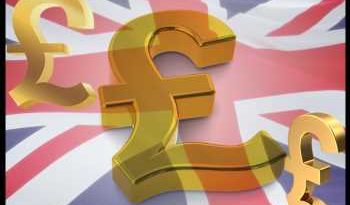‘Europe is in a deep hole’: Recovery set to take longer amid ‘disappointing’ Covid vaccine rollout
- The IMF cut its growth expectations for the euro zone by 1 percentage point to 4.2% this year.
- European leaders are wary of new variants of Covid-19 and have been battling growing infection rates, mainly since Christmas.
- In addition, vaccinations began in late December, but the rollout has been complicated across the region.
- The IMF does not expect the euro area economy to return to end-of-2019 growth levels before the end of 2022.
LONDON — Europe's economic pain is expected to worsen before it gets better, potentially boosting the popularity of populist leaders and the need for more action from the European Central Bank, analysts have said.
While the International Monetary Fund upgraded its global growth forecasts last week, it said the outlook for the euro zone had deteriorated. The Fund cut its growth expectations for the region by 1 percentage point to 4.2% this year. Germany, France, Italy and Spain — the four largest economies in the euro zone — all saw their growth estimates cut for 2021. According to estimates from the ECB, the euro zone economy could have contracted by more than 7% in 2020.
"Europe is in a deep hole. The pandemic is very uncertain, the rollout of the vaccine is frankly disappointing in Europe and therefore the risk of a deeper hole is there," Erik Nielsen, group chief economist at UniCredit, told CNBC's Squawk Box Europe.
European leaders are wary of new variants of Covid-19 and have been battling growing infection rates, mainly since Christmas. As a result, lockdowns have been extended or re-introduced, curfews tightened, and schools closed in attempts to contain the spread.
"For the eurozone, it seems everything went wrong at the end of 2020 and things have only got worse at the beginning of 2021," analysts at Gavekal Research said on Monday.
In addition, vaccinations began in late December, but the rollout has been complicated across the region. There have been issues around supply, production and red tape preventing a faster distribution of the jabs and this has led to political infighting within the bloc.
"Unfortunately, hopes for recovery are pinned on a vaccination program which has been late to start, slow to gather speed, and beset by problems. And even when states can begin relaxing restrictions, the euro zone will face a new round of political risks and implementation risks that could weigh on the bloc's recovery," Gavekal analysts also said in a note.
The IMF does not expect the euro area economy to return to end-of-2019 growth levels before the end of 2022.
Populism
Another challenge facing European leaders now is how to spend upcoming European recovery funds. The European Commission is due to tap the markets later this year in search for 750 billion euros ($905 billion) which will be distributed across the 27 nations.
But before receiving any money, European capitals must present their ideas on how they will invest it. This exercise already sparked political disputes in Italy, where the prime minister had to resign over differences on how to use the EU funds.
"We are concerned that 'lockdown fatigue', exacerbated by mounting criticism on Brussels' handling of vaccination procurement, could fuel populist movements which so far did not fare that well in Europe since the start of the pandemic," Gilles Moëc, group chief economist at AXA Investment Managers, said in a note on Monday.
The political crisis in Italy has yet to be solved and there is a risk that snap elections might not be avoided. The anti-immigration party Lega is leading the polls.
The Netherlands and Germany, where anti-immigration and EU-sceptical parties have grown their presences at the national parliaments in recent years, face general elections later this year.
ECB
The ECB has stepped up its presence in the financial markets in the wake of the pandemic to contain the economic pain.
The central bank went a step further in December, by extending its massive stimulus program —the Pandemic Emergency Purchase Programme, totalling 1.85 trillion euros ($2.25 trillion) — until March 2022.
However, ECB member Klaas Knot said last week that the central bank has not exhausted its tools and could cut interest rates too. The ECB's deposit rate is at -0.5% — a historic low.
UniCredit's Nielsen told CNBC that monetary policy "really is out of useful firepower" and so the fiscal side has to join the ECB's efforts.
"I am frustrated that it looks like the European fiscal policymakers have lost the ambition or is misguided by this concern over public debt at a time when the economies are running at maybe 4-5% below the end of 2019, huge output gaps, people are suffering out there," Nielsen told CNBC.
If fiscal intervention lags, then the ECB might become under pressure to do more, but some question whether it could actually be efficient, given how much monetary policy support there is already.
Source: Read Full Article

